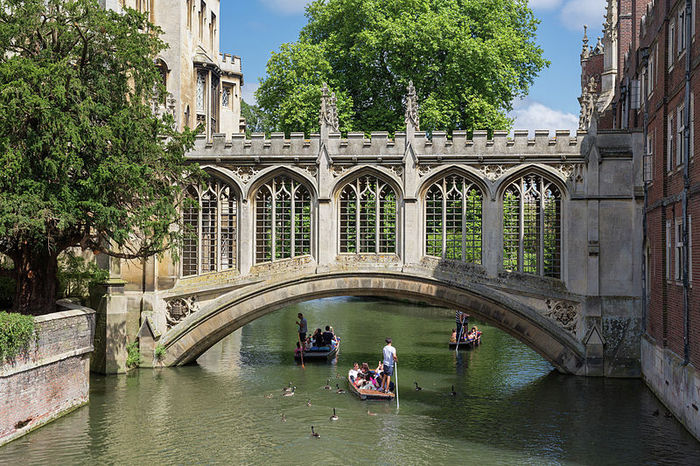University releases #StaySafeCambridgeUni Campaign
The measures have been put together by the University and Colleges in consultation with over 300 students and staff

This morning (24/08) the University released the Stay Safe Cambridge Uni Campaign which gives guidance on how members of the University should behave upon returning to Cambridge.
The campaign lays out rules in a range of areas including travelling to Cambridge from overseas, wearing face coverings and gathering in social groups.
In all these areas the University must abide by government regulations in all areas. This is particularly important with regard to overseas students returning to Cambridge
On the website the University details that “UK Government regulations currently require a quarantine period to be undertaken by people upon arrival in the country. Some countries and territories are exempt from this requirement and no quarantine is required for travellers from these areas...If your country or territory does not appear on the exempt list, you must undergo a period of 14 days quarantine during which you are expected to self-isolate and are subject to specific movement restrictions.”
Students in quarantine will not be able to visit public areas or go shopping and must “avoid as much contact with other people as possible in the quarantine accommodation to reduce the risk of transmitting coronavirus.”
For those quarantining in College, the website confirms that “your College will arrange for food to be made available to you, usually by delivery to your room during the quarantine period. The arrangements may vary between Colleges and your own College will be able to give you specific details of the arrangements they have made.”
Travelling from overseas and the impact of quarantining has been one of the most controversial areas of regulation. Some colleges have delayed releasing information on possible return dates, making it very difficult for students to plan their return to Cambridge.
Socialising between households has been one of the most eagerly awaited aspects of University regulation. The website specifies that “If you live in College accommodation that includes a shared bathroom/shower and/or toilet and/or kitchen area, then all the occupants that share these facilities constitute a ‘household’.”
There are strict rules on interaction between households. Households “can host a visit from one other household at any one time provided social distancing is maintained.” Those living in private or an off-site College hostel are “responsible for retaining a list of your visitors in the preceding 21 days for Test and Trace purposes.”
Although government guidance allows “for a person living in a single household to connect up with a second household to form a ‘social bubble’... people living in College accommodation will not normally be allowed to operate social bubbles in this way. To do so might be unfair or lead to undue pressure on other members of a shared household since a social bubble is permitted to contain only two households in total.”
In effect this rules out overnight visits from members of other households.
The aim of these regulations is “to keep to a minimum any transmission of the virus between households. Close and consistent adoption of this practice has helped protect students already in Cambridge in the months since lockdown was applied...The size and nature of household will inevitably vary depending upon the type of accommodation available and offered in different Colleges.”
Alongside these rules the University has also published its advice on face coverings and hand-washing.
In regards to face coverings: “The University and Colleges expect members of the Cambridge community to wear face coverings in any work or study setting, unless it is clear that social distancing of at least two metres can be maintained at all times, or someone has a medical exemption. We should carry face coverings with us at all times and wear them when asked to do so by College or University authorities or when it would be a courtesy to others.”
The information on hand-washing advises that members of the University wash their hands frequently for at least 20 seconds using soap and water or hand sanitiser.
In its advice on testing, the University outlines that there are two locations for testing: the S2 Testing Pods at Addenbrooke’s Hospital and the Dyson Building in the Department of Engineering.
If someone tests positive, “Current guidance is that… you must self-isolate for 10 days and your entire household group must self-isolate for 14 days.”
The University has also published information on available help and support as well as downloadable resources.
These resources include #StaySafeCambridgeUni posters which will be placed in Colleges and University buildings. However, in his email this morning, the Vice Chancellor also noted that “In an institution as varied as Cambridge there will inevitably be some differences between buildings and settings and so you should also look out for more specific, local guidance.”
More information and updates on measures will be posted on social media and the website in the run-up to Michaelmas term.
 News / Caius mourns its tree-mendous loss23 December 2025
News / Caius mourns its tree-mendous loss23 December 2025 News / Clare Hall spent over £500k opposing busway 24 December 2025
News / Clare Hall spent over £500k opposing busway 24 December 2025 Comment / The ‘class’ of Cambridge24 December 2025
Comment / The ‘class’ of Cambridge24 December 2025 Comment / Yes, I’m brown – but I have more important things to say22 December 2025
Comment / Yes, I’m brown – but I have more important things to say22 December 2025 Interviews / Politics, your own way: Tilly Middlehurst on speaking out21 December 2025
Interviews / Politics, your own way: Tilly Middlehurst on speaking out21 December 2025









